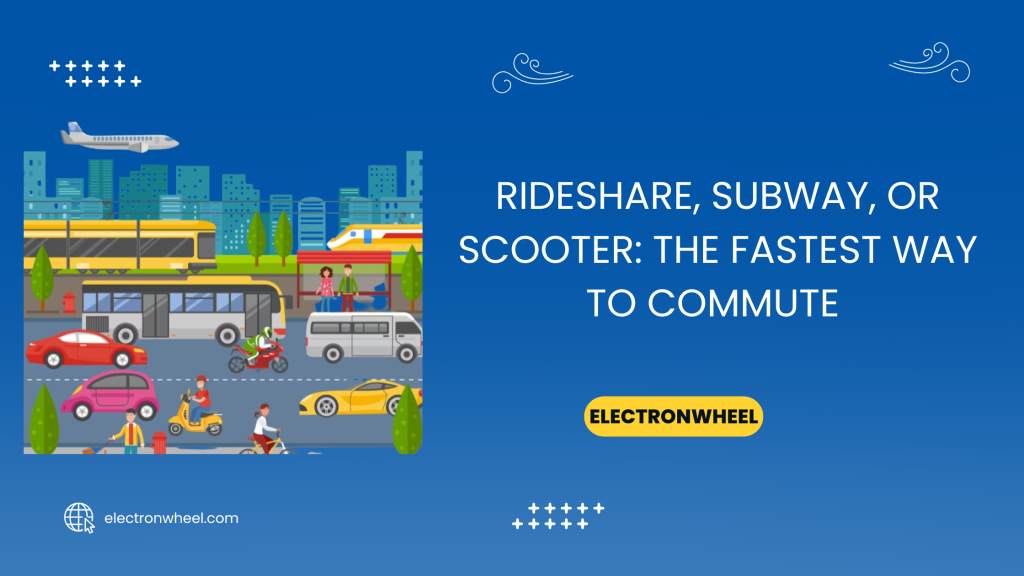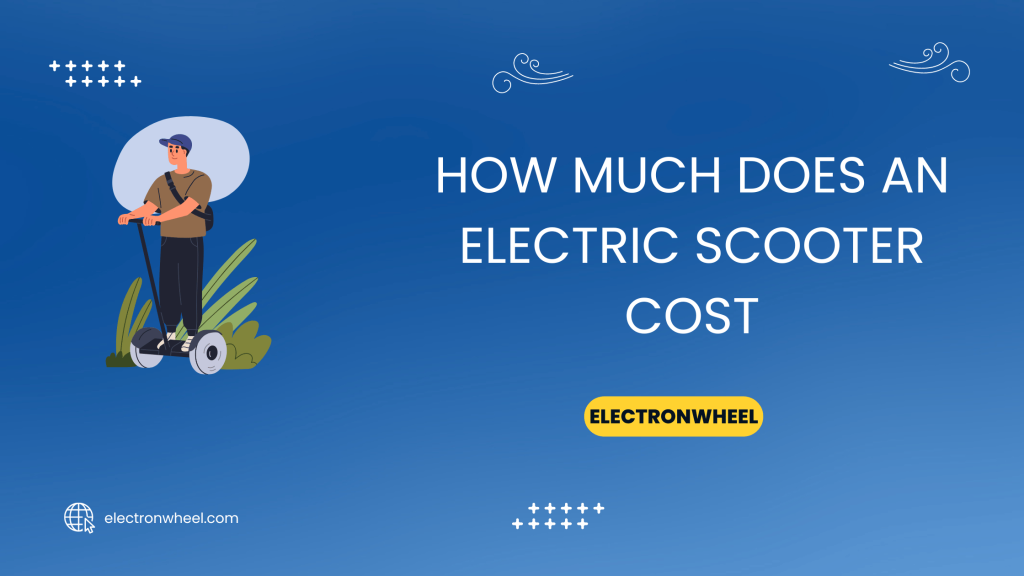This post contains affiliate links, we'll earn compensation if you make a purchase using them at no additional cost to you 😊
Electric bicycles, known as e-bikes, have been gaining popularity in recent years as a greener form of transportation. E-bikes provide an electric boost while pedaling, allowing riders to travel faster and farther with less physical exertion.
With costs rising for both gas and public transit, e-bikes are becoming an appealing alternative for commuters. They are also used recreationally by cycling enthusiasts who want to ride faster and longer. But there are also some disadvantages to having an electric bike.
In this article, we will discuss 35 pros and cons of electric bikes so you can decide whether this EV is perfect for your commuting needs.
25 Pros of Electric Bikes In 2025
Here is an in-depth look at the pros and cons of electric bikes. First, let’s have a look at the benefits.
1. Requires less physical effort
Electric bikes make cycling more accessible and enjoyable for a wider range of people. The electric assist motor provides extra pedaling power, especially for accelerating, climbing hills, and riding against headwinds. This allows riders to go farther distances and speeds with less fatigue.
2. Environmentally friendly transportation
Because they produce zero emissions, electric bikes are considered one of the greenest transportation options available. Widespread e-bike use can significantly reduce air pollution, noise pollution, and carbon emissions, especially in dense urban areas where automobiles congest roadways.

3. Significant cost savings
Electric bikes provide substantial savings compared to the costs of owning and operating a car. With an e-bike, there is no need to budget for gas, car insurance, parking fees, or routine maintenance. Charging an e-bike battery costs just a few cents per charge.
4. Convenient transportation for commuting
Electric bikes can make daily commuting faster and easier, especially when paired with public transportation for multi-modal commuting. Their small size also makes parking and storing e-bikes much more convenient compared to cars. Many employers are even providing workplace charging stations.

5. Great exercise while commuting
Using an electric bike for commuting provides the benefit of daily exercise built into your routine. The ability to arrive fresh and energized is also a perk. Most e-bike riders still get an effective cardio workout since they pedal the bike and control their effort. When contemplating electric bicycle pros and cons, keep in mind the potential health benefits of more accessible cycling options.
6. Reduce urban traffic congestion
Increasing the number of people commuting by e-bike rather than a car can help reduce inner-city traffic congestion that results from solo car commuting. This also decreases commute times for all commuters.

7. Enjoyable to ride
Electric bikes can reach 20+ mph speeds with just the twist of a throttle. The instant power boost makes riding an e-bike exciting and fun. Riders describe the riding experience as joyful and even addicting.
8. Increased mobility for older citizens
The pedal assistance provided by e-bikes helps increase the mobility of older riders. It allows them to access more destinations and retain an active lifestyle. This promotes independent living and improves the quality of life.
9. No license or insurance is required
Unlike most motorized vehicles, no electric bike license, registration, or insurance is required to operate an electric bike in most regions. E-bikes are classified as bicycles rather than mopeds or motorcycles.
10. Highly customizable for your needs
Riders can select from a wide variety of e-bike frame styles, motors, batteries, and accessories to create their optimal e-bike. Customizing an e-bike makes it more uniquely personal.
11. Regenerative braking systems
Most electric bikes have regenerative braking, which captures the kinetic energy during braking to assist in recharging the battery. This saves energy and helps extend battery range. So, you can say some electric bikes charge while pedaling.
12. Reliable electric motors require little maintenance
Modern e-bike motors are compact yet powerful. Mid-drive motors evenly distribute weight for smooth handling. Overall the motors require minimal maintenance compared to internal combustion engines.
13. Expanding battery capacity and range
Thanks to improving technology, e-bike batteries can store more energy in smaller, lighter packages. Many e-bikes now get 40-80+ miles from a single charge, depending on conditions. Carrying extra batteries can also extend the range.
14. Increased cycling confidence for beginners
The stability and extra control provided by e-bikes help make cycling accessible to more tentative beginners. The power assist allows for building skills and confidence gradually.
15. All ages can ride together
The pedal assistance of electric bikes helps equalize ability levels, allowing younger kids, older riders, and those with differing fitness levels to ride together. More families take up cycling as a result.

16. Conquer challenging terrain
Steep hills, rough trails, and long distances that would be extremely difficult on a traditional bike pose no major challenge with the consistent power boost of an electric bike. More adventurous routes become possible.
17. Natural riding experience
Intelligent e-bike systems monitor your cadence and apply power smoothly using torque sensors. This creates a natural biking feel rather than an abrupt jolt when the motor engages.
18. Choose a frame style to suit your needs
E-bike motors can be outfitted onto road, mountain, commuter, cargo, folding, and other frame styles. This caters for the e-bike performance and capabilities of different riding needs and preferences.
19. Pedal without battery power
If an e-bike’s battery dies, riders can still pedal the bike manually as they would a traditional bicycle. The bike will just handle a heavier non-electric bike when unpowered.
20. Health benefits from riding
Studies show e-bike riders get valuable exercise and have improved cardiovascular fitness compared to non-riders. Physical activity helps lower stress levels as well.

21. Fill transportation gaps
Electric bikes nicely fill the gap between cars and public transit. They can provide last-mile connectivity from transit hubs to destinations not feasibly served by bus or rail.
22. Effective for cargo hauling
Specialized cargo e-bikes allow consumers to haul kids, pets, or cargo without a car. Businesses use them for lightweight delivery operations as well. Cargo e-bikes are far less cumbersome than a car.
23. Useful mobility in rural or remote regions
Electric bikes provide inexpensive, sustainable personal mobility in rural areas not served by much public transportation. The electric assist makes longer distances manageable.
24. Quiet operation
Electric bikes produce minimal noise since they lack loud engines or exhaust systems. For riders and bystanders, they provide a peaceful, tranquil riding experience.
25. Fun recreational activities
The electric assist extends the possibilities for cycle touring or riding long distances on bike paths. Miles of scenic riding become more feasible and enjoyable as a relaxing recreational outlet.
Bonus: Learn how to build a DIY electric bike!
10 Cons of Electric Bikes In 2025
Apart from the benefits, there are some disadvantages to having an electric bike. Electric bicycle pros and cons vary for each individual, depending on factors like terrain and the importance of pedal assistance. Let’s have a look at them.
1. Higher upfront costs
Electric bicycle pros and cons vary depending on factors like cost, convenience, and environmental impact. Electric bikes typically cost $1,000 to $5,000, substantially more than comparable non-electric bicycles. However, lower-cost consumer models are beginning to come to market.
2. Replacement batteries can be pricey
If an e-bike’s lithium battery fails after 2-5 years, replacing it can be expensive, often costing over $500. Proper care can extend battery life. A 1000-watt electric bike may be pricey, but its battery lasts longer.

3. Heavier weight
Electric bikes weigh approximately 15-50 pounds more than standard bicycles, largely due to battery and motor weight. This makes lifting and carrying them more challenging.
4. Risk of theft

As a valuable high-tech product, locked-up electric bikes left unattended are vulnerable to theft. Using trackable location devices and multiple locks helps prevent thieves.
5. Safety concerns about speed
The higher speeds possible on e-bikes raise safety concerns if riders exceed bike lane speeds or don’t yield to pedestrians. Focusing on responsible riding is key.
6. Charging infrastructure access
While home charging is simple, those relying on public infrastructure may find inconsistent availability and access to charging stations. And ebike charging can take forever.
7. Reduced exercise at top speeds
Riders tend to pedal less when an e-bike provides very high-speed operation. Setting lower assist modes encourages more pedaling activity.
8. Severely reduced range in extreme cold or heat
Both very high and very low temperatures degrade lithium batteries’ performance substantially. Storing bikes properly helps mitigate this.
9. Legal ambiguity
Laws regulating the use and operation of e-bikes on roads, paths, and trails vary significantly between states and localities. Riders must research their area’s codes.
10. Safety precautions are still essential
As with all bicycles, following safety best practices such as proper handling, helmet use, visibility, and maintenance is still vital for avoiding accidents and injury. Ebikes provide an efficient way to commute, but it’s crucial to be aware of ebike pros and cons, including the initial potential maintenance.

Is it Worth Buying an Electric Bike?
Deciding whether it’s worth buying an electric bike hinges on your unique needs and circumstances. Electric bikes offer distinct advantages, such as effortless pedaling assistance and reduced commute times, which are particularly beneficial for hilly terrains and long distances. They’re eco-friendly and cost-efficient in the long run, sparing you from fuel expenses.
However, the initial purchase price can be higher than traditional bikes, and ongoing maintenance costs exist, primarily related to the battery. Luckily, you can find many reliable electric bikes under $1000.
Understanding bike pros and cons can assist you in determining whether these electric-powered bicycles suit your requirements. The decision ultimately boils down to convenience, health benefits, and eco-consciousness. However, it’s essential to carefully evaluate the upfront cost and ongoing expenses when determining if buying an electric bike is worth it.
Related Reads
- Best Electric Bikes Under $1000
- How Fast Do Electric Scooters Go?
- Where Is The Reset Button On Electric Scooter?
Conclusion: Pros and Cons of Electric Bikes
Exploring the pros and cons of electric bikes can help you make an informed decision before purchasing one. Electric bikes can provide a fuel-efficient alternative for commute and everyday transportation for many people today. E-bikes bring the benefits of cycling to more riders thanks to the pedal assist. However, the higher costs, access to charging, and potential safety hazards also require consideration.
With a responsible approach to selecting, riding, and maintaining an e-bike, they can be a fun, sustainable transportation option. Electric bikes will likely become even more practical and popular as technology advances.
FAQs: Pros and Cons of Electric Bikes
Most e-bikes can travel 20-50 miles on a single charge. Higher-end models with large batteries can exceed 80+ miles per charge. Range depends on the battery size, power assist level used, rider weight, and terrain.
Yes, e-bikes still provide a good cardiovascular workout, especially when riders use lower assist modes regularly. The electric motor just provides help when needed.
Like all bicycles, electric bikes do carry some safety risks if not ridden responsibly. However e-bikes provide stability for new riders and usually have reliable braking systems. Using proper safety gear and observing traffic laws greatly improves safety.
Yes, the extra power from the electric motor allows e-bikes to tackle steep inclines much more easily than conventional bikes. The gradient and a rider’s weight affect performance, though.
There are several compelling reasons why you might want to buy an electric bike, such as their ability to make commuting faster and more enjoyable. Electric bikes can also be a green choice, reducing your carbon footprint and contributing to a cleaner environment.


